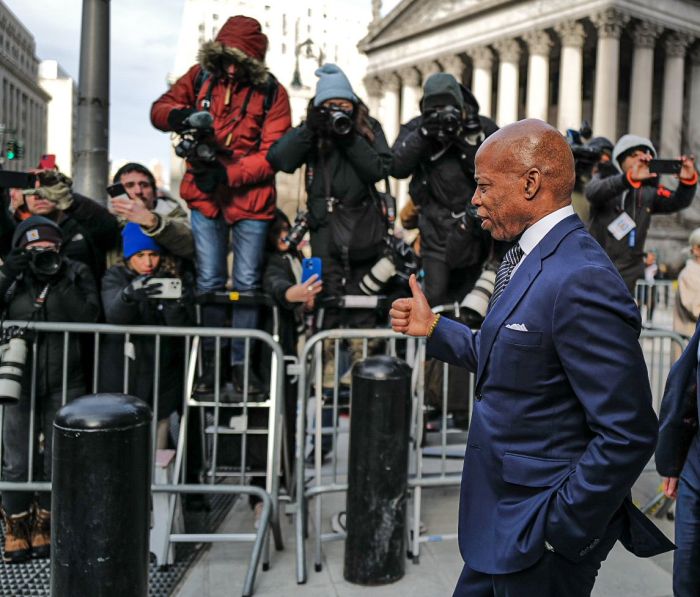Groceries or electric bill? Baby formula or meds? These are choices no one should have to make – but millions of New Yorkers do, every day.
It’s been a tough few months for food-insecure New Yorkers. Families who were just getting their footing post-pandemic had the rug pulled from underneath them as pandemic-era aid ended and food costs soared.
With the national asylum seeker crisis layering on top of the ongoing economic crisis, our city’s emergency food network is being pushed to its limit.
We saw during the pandemic how effective public policy can be to ensure people have access to nutritious food. The Farm Bill, being reauthorized this year, is a crucial tool in the fight against hunger.
The Farm Bill’s name might not immediately bring to mind urban hunger; nonetheless, this legislation is essential in the fight for food security in NYC, funding lifeline programs like the Supplemental Nutrition Assistance Program (SNAP) and The Emergency Food Assistance Program (TEFAP).
This year, it’s more important than ever for our elected leaders to come out strong in the fight against hunger.
This starts with strengthening SNAP by removing barriers to participation.
Nearly 1.8 million New York City residents and 42 million people nationwide rely on SNAP for food; it is the backbone of our fight against hunger.
It reduces the strain on food pantries, which were never meant to be used as main sources of food, and injects funds into the economy. Every one dollar of SNAP spent at bodegas and supermarkets echoes through our economy with over $1.50 in local impact.
People assume that SNAP is available if they need it, but too many Americans can’t consistently count on it. While many College students report food insecurity, too many don’t qualify for SNAP because work requirements put student’s pursuit of education and economic mobility at odds with qualifying.
But students aren’t the only ones who hit roadblocks. The recent debt ceiling agreement expanded the population who are subjected to the three-month time limit on SNAP, which impacts adults over 50 and strips food help from those already facing unemployment.
Denying food does not increase employment; it’s time to do away with the work hurdle.
Finally, the ban against purchasing prepared food with SNAP makes it harder for people without consistent kitchen access to feed themselves and doesn’t meet the needs of busy families.
Seniors, for example, might face challenges cooking; people living in congregant settings don’t have regular kitchen access. Workers with more than one job may not have time to go home and cook before heading to second shift. We must allow purchasing prepared meals with SNAP.
Lawmakers must also push to diversify the support that TEFAP is able to provide.
TEFAP is the main federal support for food pantries and soup kitchens. Last year, it provided over 32 million meals in New York City alone.
First, Congress must authorize increased investments in TEFAP food supply, storage and distribution. Also, TEFAP should increase access to kosher and halal meals – ensuring families with religious dietary requirements are able to access nutritious food with dignity and in keeping with their faith.
In addition, TEFAP currently requires recipients to attest to their need for food help, which stigmatizes participation and adds another hurdle to keep people from getting assistance. Let’s do away with that requirement.
Finally, we need our leaders to expand grants for community-led and informed models.
Since 1996, the USDA’s Community Food Projects Competitive Grants Program (CFP) has provided $5 million annually in grants for community-led strategies to end hunger.
In New York, it has funded a food cooperative in Bedford-Stuyvesant and a program in the Bronx where urban farms grow tomatoes for a community-owned hot sauce business.
We know that each community has unique hunger needs and that local leaders are best equipped to reach their neighbors with solutions. It’s time for lawmakers to scale up CFP with fewer strings—namely removing a matching grant requirement that pressures small community groups to raise up to $400,000 on their own. Congress should drop this matching requirement and advance the CFP out of pilot to a fully-funded program.
The Farm Bill is critical for New York City, which is why we were in Washington D.C. on September 12 to advocate for these common-sense improvements that fight hunger and ensure our communities have the food we all need to thrive.
As the city’s three largest anti-hunger organizations, we ask all New Yorkers to join us in seeking a stronger Farm Bill for a stronger New York City. Please consider calling your congressperson in service of a stronger Farm Bill.
Jilly Stephens is CEO of City Harvest; Leslie Gordon is CEO of Food Bank for NYC; and Grace C. Bonilla is CEO of United Way of NYC.





































